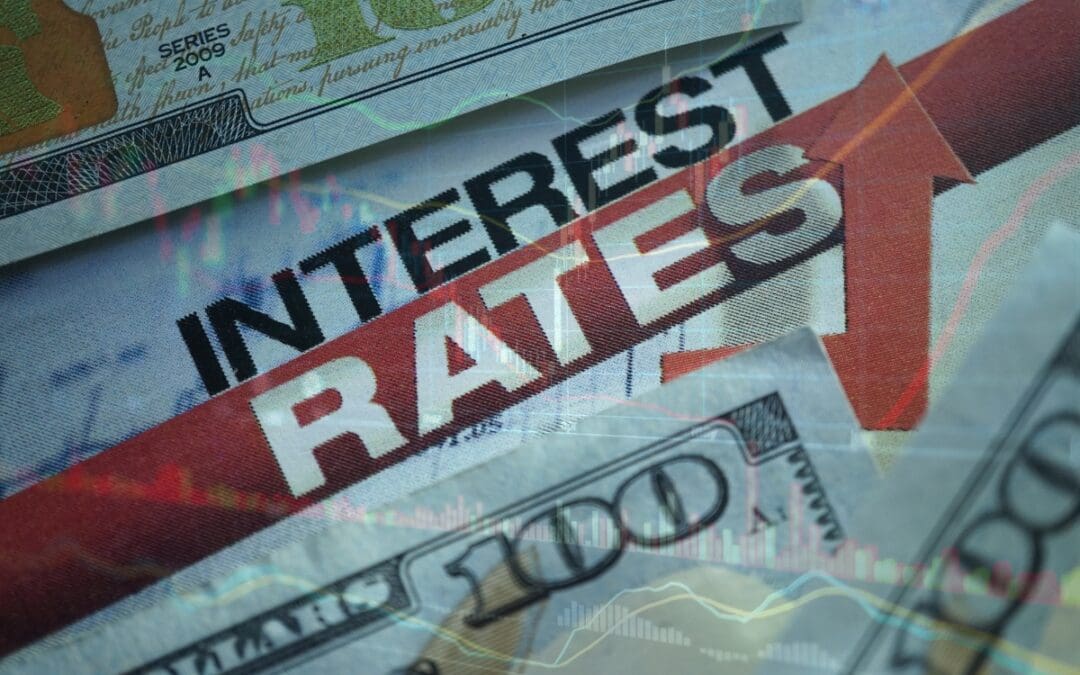Interest rates are vitally important to equity investors. They drive decision-making and the general way that the market behaves. This thorough examination will cover the intricate interactions between interest rates and the stock market, identifying how players behave and the possible influence on investors.
Supply and Demand
At the core, the connection between interest rates and the stock markets is all about the basic principle of supply and demand. In times of low interest rates, the cost of borrowing decreases, and people engage in economic activities and invest in stocks, thus stimulating the economy and generally pushing stock prices higher. On the other hand, a rise in interest rates causes more costly borrowing which consequently slows down economic growth and steers investors’ money from stocks to less risky options like bonds and money markets.
But why do interest rates vary in the first place? One reason is trading activity. Bond prices and interest rates move based on – you guessed it – supply and demand. But central banks also influence interest rates by reacting to certain economic indicators such as inflation, unemployment, and GDP. Central banks may adjust interest rates to counter the effects of these factors; the main goal being to keep inflation low and achieve overall economic stability.

The Impact of Central Banks
If central banks cut the interest rates, it is like giving the economy an adrenalin boost. With the drop in the benchmark interest rate, businesses invest in new capital equipment, recruit more workers, and expand research and development. Consumers are also responsive to decreased borrowing costs, which leads to increased spending on goods and services. This rise in economic activity is reflected in the earnings of the companies, which in turn helps in the appreciation of share prices and leads to improved investor confidence.
Contrarily, when central banks raise interest rates, it slows down economic activity. As borrowing costs go higher, businesses may slow down growth investment and consumers may defer large purchases. Stocks decline as investors gradually become more cautious and reassess what they are willing to pay for less attractive corporate profits.
The impact of U.S. interest rates on the stock market is not only limited to the domestic markets. It affects global financial markets as well. The Federal Reserve’s shift in interest rates can have an impact on investors around the world. Financial markets are extremely interdependent, and what happens in one portion of the world can rapidly affect other countries.
The Federal Reserve (Fed) Open Market Committee is the body that governs central bank interest rate policy in the USA. Investors pay special attention to the Fed’s decisions on interest rates as it gives them valuable information on the future direction of monetary policy and the economy. Changing interest rates can impact a range of assets, including stocks, bonds, and foreign exchange, as investors reorganize their portfolios to cope with different market dynamics.
Global Influence
However, it is not easy to anticipate the market’s response to interest rate changes. Financial markets have their intrinsic uncertainty, affected by many factors, such as economic indicators or geopolitical events. Although common sense implies that stocks should appreciate when interest rates go down and vice versa, in real life the picture is more complicated. In addition to that, corporate earnings, investor sentiment, and external shocks are the other forces that can affect stock prices and market mechanisms.
In the last few years, the interest rate-stock relationship has become even more complex due to unconventional monetary policies, like quantitative easing. Central banks have been utilizing these tools to revive economic growth and stabilize financial markets since the global financial crisis. The long-term effects of these policies on asset prices and market stability are still unknown, making another possible factor in the correlation between interest rates and the stock market more complicated.
In general, the connection between interest rates and the stock market is complicated and nuanced. However, the relationship between interest rate changes and stock prices along with market dynamics is dependent on numerous factors. Investors need to be alert to developments in monetary policy and economic data, in addition to paying attention to the more general market trends and risks. By applying a diversified investment strategy, investors can get through the volatile stock market with self-assurance and tenacity.

If you need financial advice or a financial review, we would be happy to introduce you to a licensed advisor at our sister company, Asset Strategy Advisors (ASA). ASA is an SEC registered investment advisor. Contact us, or click HERE, to learn more.

